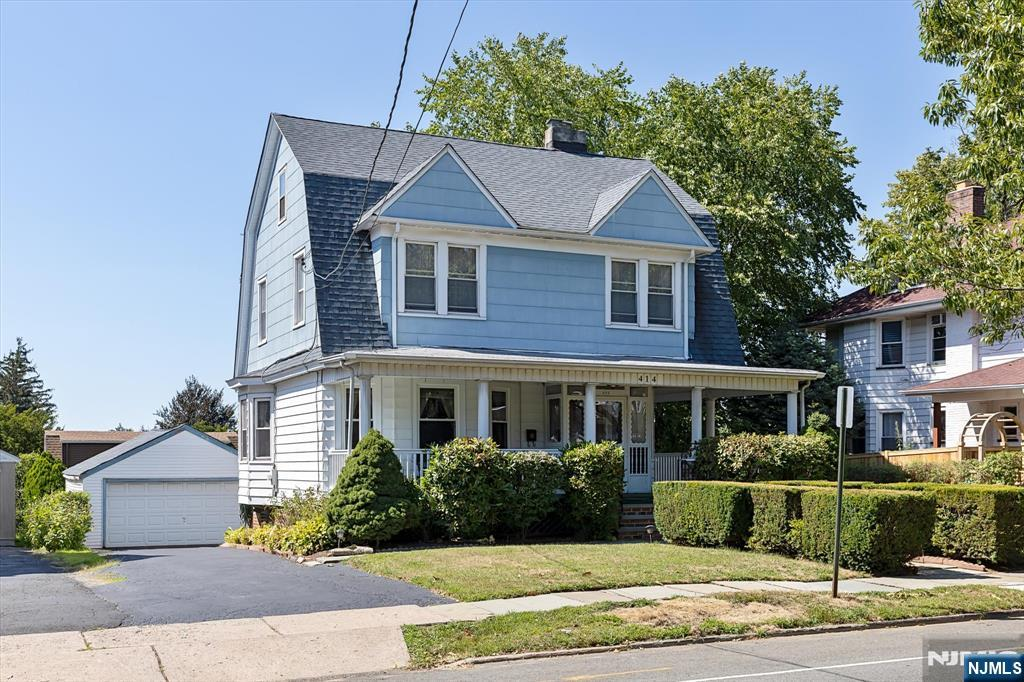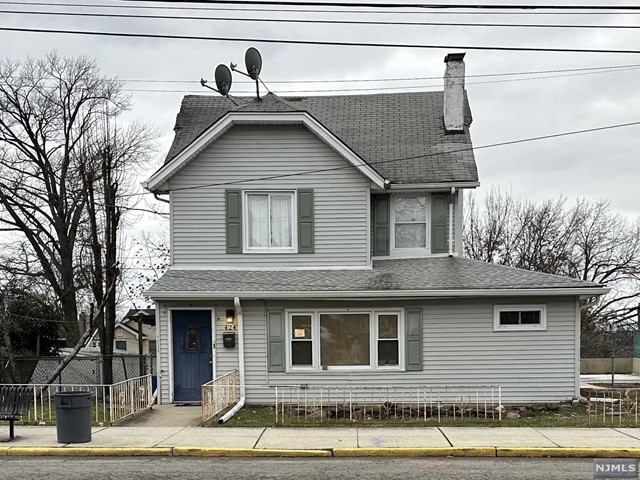By Christian DiStasio
•
August 13, 2025
Purchasing your first home is one of life’s most rewarding achievements, but it can also be one of the most challenging—especially in a highly competitive and diverse market like Bergen County, New Jersey . With a blend of bustling suburbs, family-friendly communities, and excellent commuting access to New York City, it’s no wonder so many first-time buyers are eyeing this part of the Garden State. If you’re searching for first time homebuyer Bergen County tips , this guide breaks down everything you need to know to confidently purchase your first home in 2025. 1. Get Pre-Approved for a Mortgage Early One of the most important steps in the homebuying process is securing mortgage pre-approval. It gives you a clear idea of what you can afford and positions you as a serious buyer in a competitive market. In Bergen County’s fast-paced housing scene, sellers are more likely to accept offers from pre-approved buyers. Pre-approval also helps you avoid disappointment by setting realistic expectations on your price range. 2. Explore NJ First-Time Homebuyer Assistance Programs New Jersey offers a range of first-time homebuyer assistance options that can significantly lower your upfront costs. Some of these programs are designed specifically for Bergen County residents. Here are top programs for 2025: NJHMFA First-Time Homebuyer Program : Offers low-interest mortgages to qualified buyers. NJHMFA Down Payment Assistance Program : Provides up to $15,000 in forgivable assistance. HUD-Approved Counseling Agencies : Help you understand budgeting, credit, and homeownership responsibilities. These options are ideal for buyers searching for first home advice NJ . 3. Budget Beyond the Purchase Price Many new buyers make the mistake of planning only for the down payment and monthly mortgage. However, true affordability requires budgeting for everything from closing costs to maintenance and property taxes. Typical expenses include: Property taxes (Bergen County taxes are among the highest in NJ) Homeowner’s insurance Home inspections and appraisals Closing costs (2–5% of the home price) Moving and repair costs Understanding the full financial picture helps you avoid surprises later. 4. Understand the Bergen County Housing Market Bergen County offers over 70 municipalities, each with its own culture, school system, and property values. Where you choose to live will impact your commute, taxes, and even long-term property appreciation. Examples of neighborhoods by lifestyle: Budget-conscious : Garfield, Lodi, Bergenfield Family-focused : Glen Rock, Wyckoff, Oradell Great for commuters : Fort Lee, Leonia, Rutherford High-end luxury : Saddle River, Franklin Lakes, Alpine Research recent sales and price trends in each area. Local knowledge matters in a county this diverse. 5. Partner with a Local Real Estate Agent An experienced Bergen County real estate agent can provide the insight and advocacy you need. A good agent will: Guide you through neighborhoods that fit your lifestyle and budget Alert you to upcoming listings Help you structure competitive offers Connect you with local lenders, inspectors, and attorneys Choose someone who has experience with first-time buyers and can break down complex terms with clarity. 6. Never Skip the Home Inspection While you may be tempted to waive contingencies in a bidding war, skipping the home inspection is never advisable. Many Bergen County homes were built decades ago and could have issues hidden beneath the surface. Inspections typically cover: Electrical and plumbing systems Roofing and structure Basement moisture or foundation issues Mold, radon, or pest damage Attend the inspection in person so you can ask questions and understand potential future repairs. 7. Plan for Closing Costs Closing costs are often overlooked but can add thousands to your total home purchase. In Bergen County, closing costs typically range from 2% to 5% of the purchase price. Common expenses include: Title insurance and legal fees Transfer taxes and recording fees Property taxes escrow Lender origination fees Ask your lender for a Loan Estimate early in the process, and your agent for ways to negotiate with sellers to cover a portion of the costs. 8. Evaluate Commute and Transportation Access Bergen County is prized for its commute-friendly towns , especially for those working in New York City. But each town’s transit access varies. Consider: NJ Transit train lines (available in Glen Rock, Ridgewood, Rutherford) Express bus routes (popular in Fort Lee, Teaneck) Highway access to Route 4, I-80, and the Garden State Parkway Make sure your preferred neighborhood supports your daily travel needs—test the commute during rush hour if possible. 9. Move Quickly, but Strategically Bergen County remains a seller’s market , especially for entry-level homes. When a well-priced property hits the market, you need to act fast. But speed shouldn't mean skipping important steps. Here’s how to prepare: Get your financing lined up in advance Review listings daily and schedule showings promptly Work with your agent to submit strong, clean offers Don’t be rushed into offers on homes that don’t align with your goals or budget. 10. Think Long-Term and Future-Proof Your Investment Your first home may not be your forever home, but you should still consider long-term value when buying. Think about: The school district’s reputation Local development or rezoning plans Potential for remodeling or expansion Resale value trends in the neighborhood Choose a home that fits your current needs but also has room to grow with you. Final Thoughts Buying your first home in Bergen County, NJ in 2025 is an achievable goal with the right knowledge, tools, and local guidance. Use these tips as your roadmap—from financing and neighborhood selection to inspections and closing. Whether you're searching for first-time buyer advice in NJ , a foster care agency near me , or a trusted real estate agent in Bergen County , planning ahead is the key to finding the right home at the right price. FAQs: First-Time Homebuyers in Bergen County














